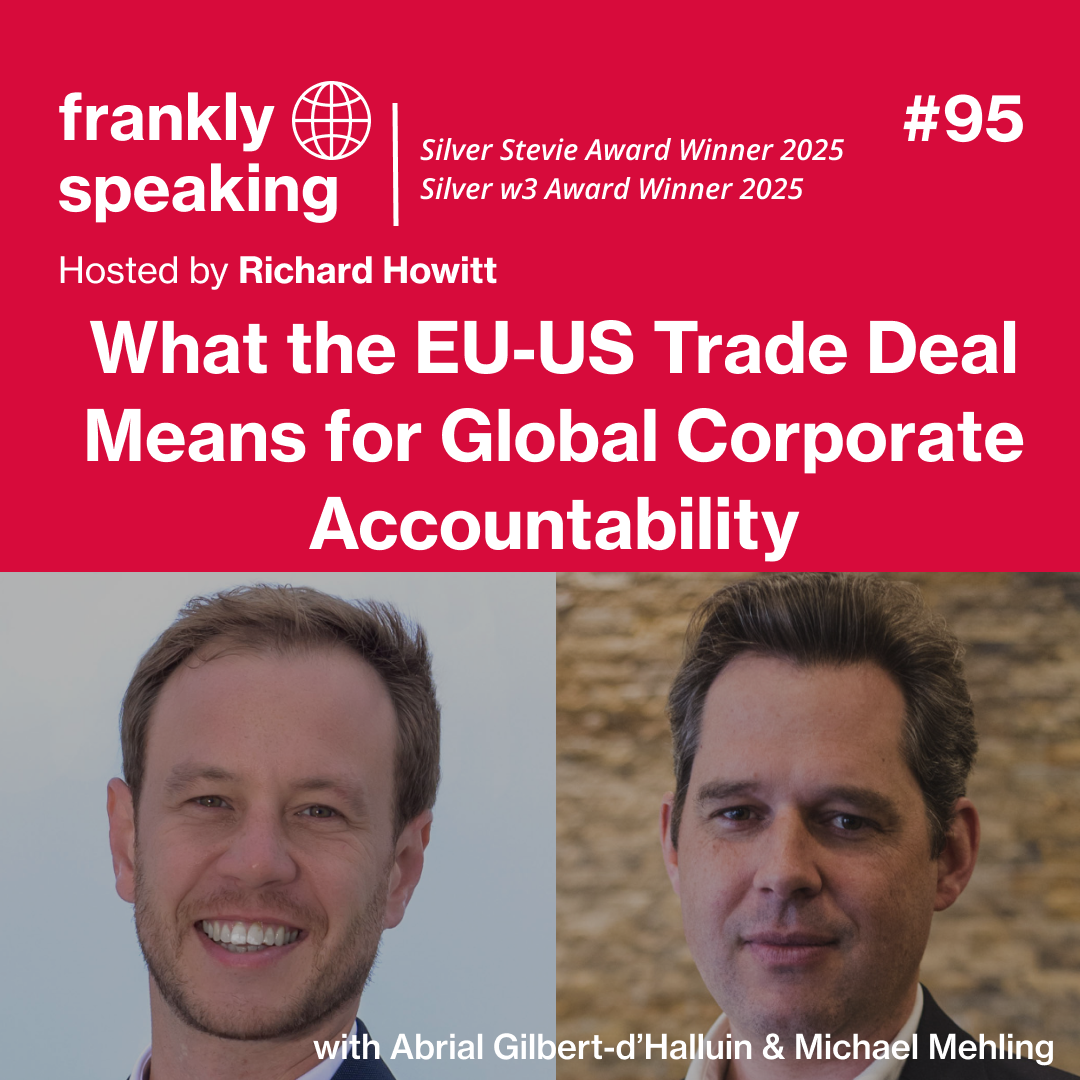Do our ideas about what makes companies competitive actually hinder the shift toward sustainability?

What role do share or stock buybacks have in this?
And has the move towards sustainable finance actually succeeded in providing incentives for companies to change?
As former ECB President Mario Draghi made his own proposals for returning Europe to competitiveness and President Ursula von der Leyen reveals her new proposed team, we ask if there is enough money for sustainability and competitiveness. If yes, where is it?
To discuss these related issues, Frankly Speaking welcomes Myriam Vander Stichele, senior researcher at SOMO, the center for research on multinational corporations.
You’ll hear more about:
Resources
"Since the Paris Agreement, we’ve seen a massive increase in companies buying back their own shares, with the promise of boosting both share value and dividends. The first problem is that there appears to be a global competitive rush for more share buybacks, which shareholders are endorsing. The second issue is the ongoing debate about the trillions of dollars needed for a just transition. We are deeply concerned that this money is going in the wrong direction—away from companies that need it to manage the transition, address climate issues, train workers for future jobs, and ensure farmers and suppliers receive sufficient income for this transition. We believe that directing funds to shareholders is not the right approach."

.png)

Are we inevitably heading towards a post-growth world? Listen to Matt Orsagh, co-founder of the Arketa Institute for Post-Growth Finance and former Senior Director of Capital Markets at the CFA Institute


The final Omnibus 1 text has now been ratified. What now? Listen to Julia Otten, Senior Policy Officer at Frank Bold and Andreas Rasche, Assistant Dean and Professor of Business in Society at Copenhagen Business School


Why is the EU’s Corporate Sustainability Due Diligence Directive coming up against intense lobbying by US politicians and businesses? Listen to Abrial Gilbert-d'Halluin, Policy Advisor for MEP Raden Kanev and Professor Michael Mehling, Deputy Director of the Centre for Energy and Environmental Policy Research at Massachusetts Institute of Technology (MIT)